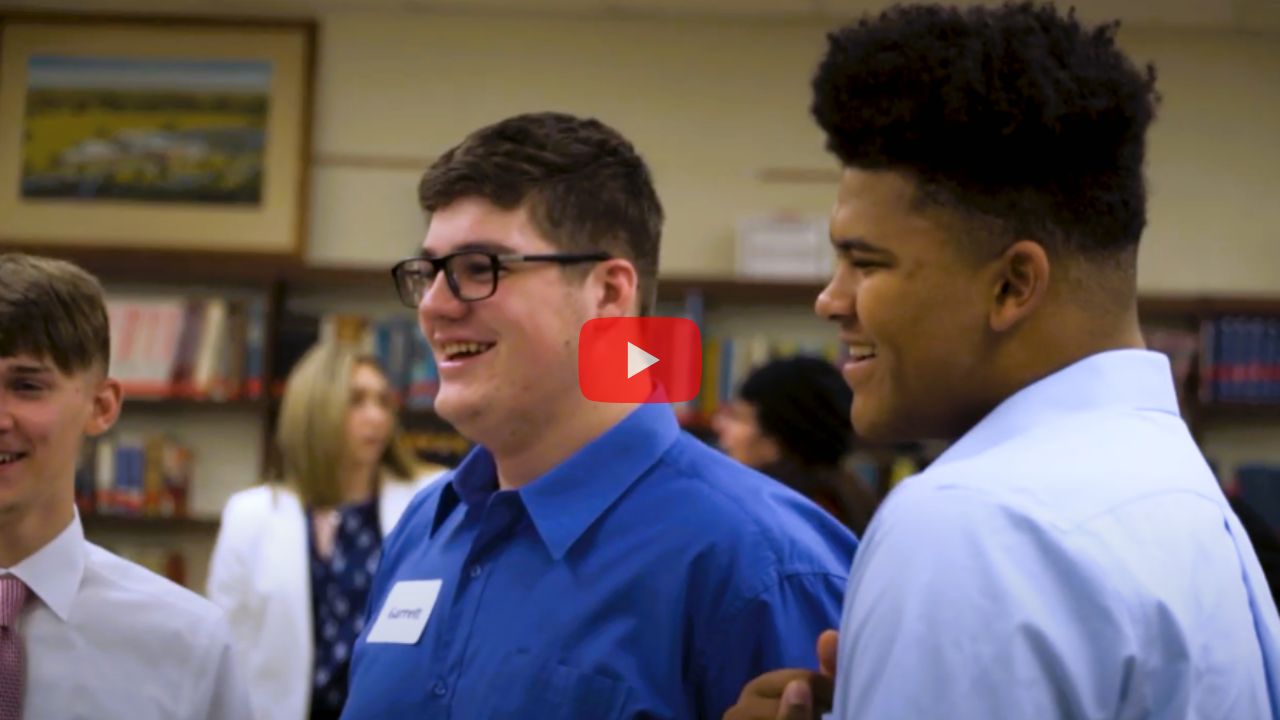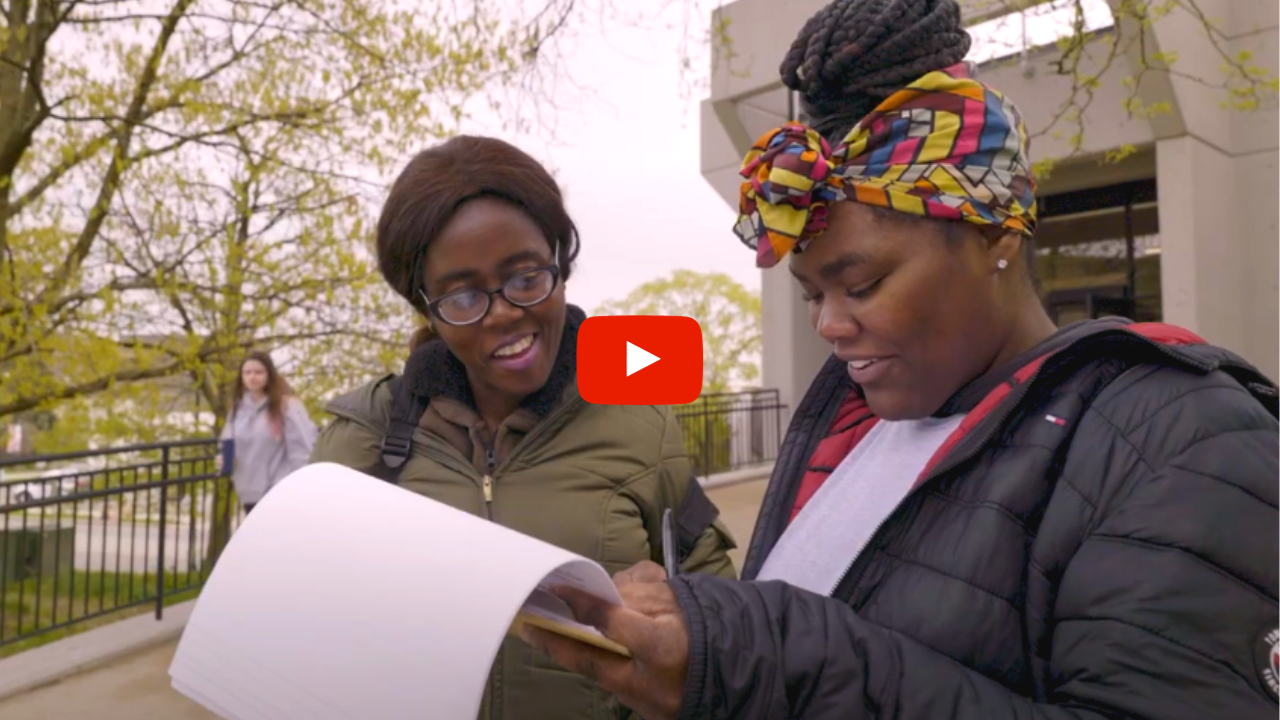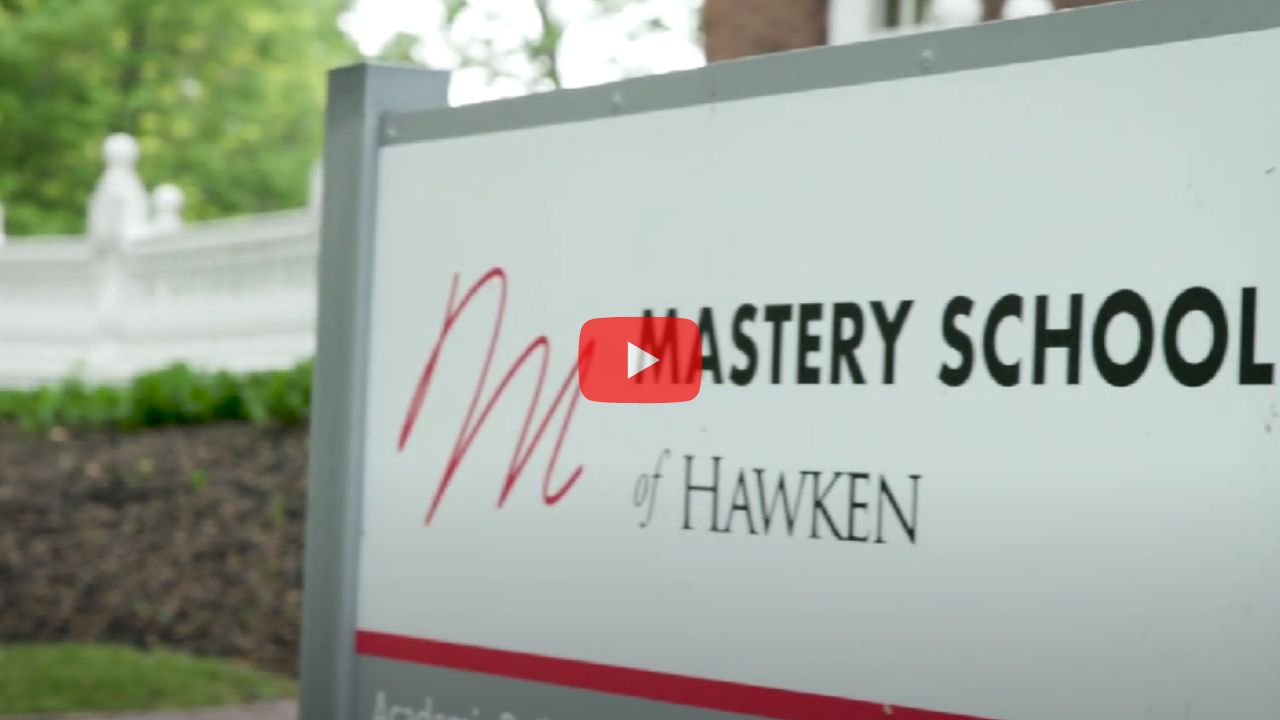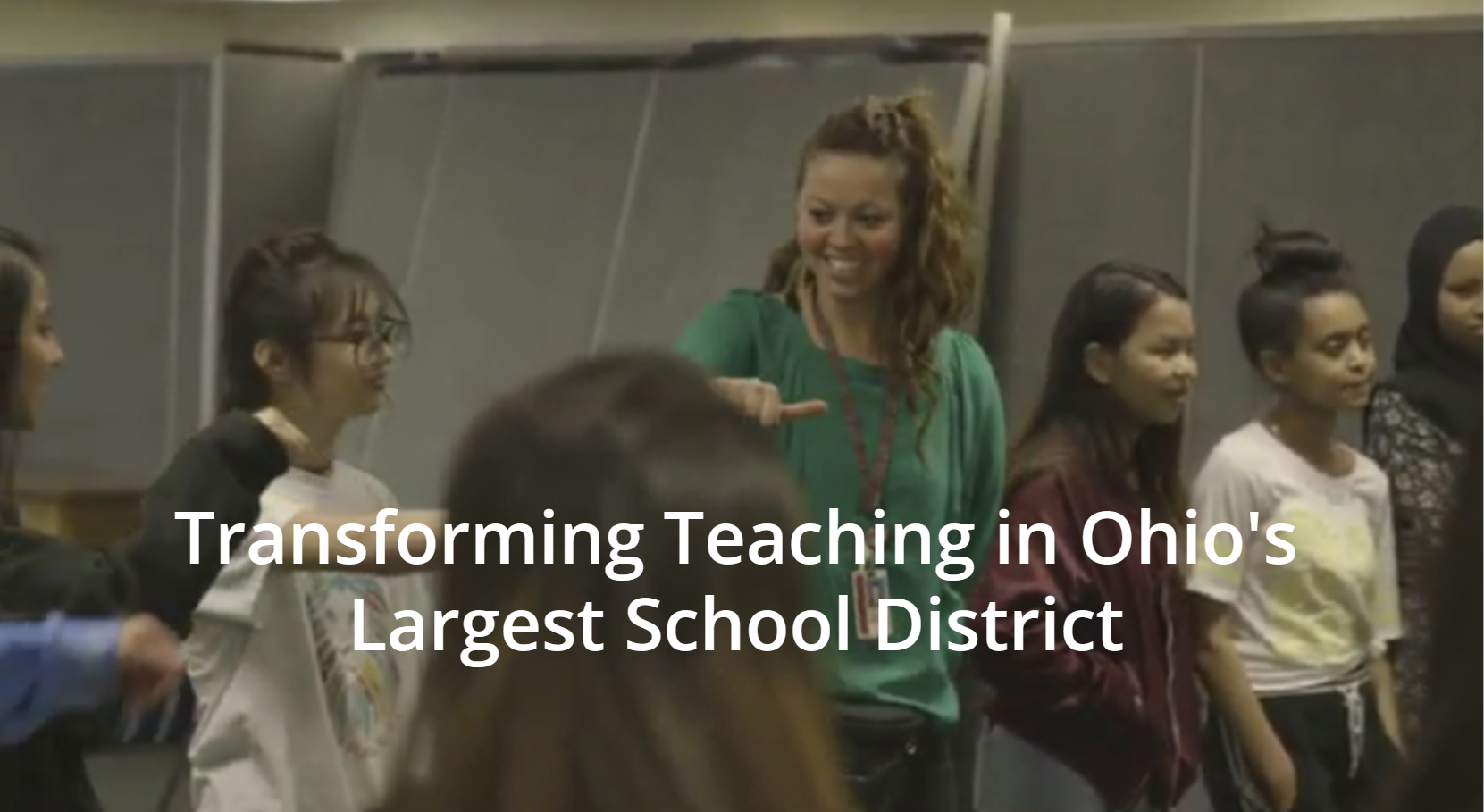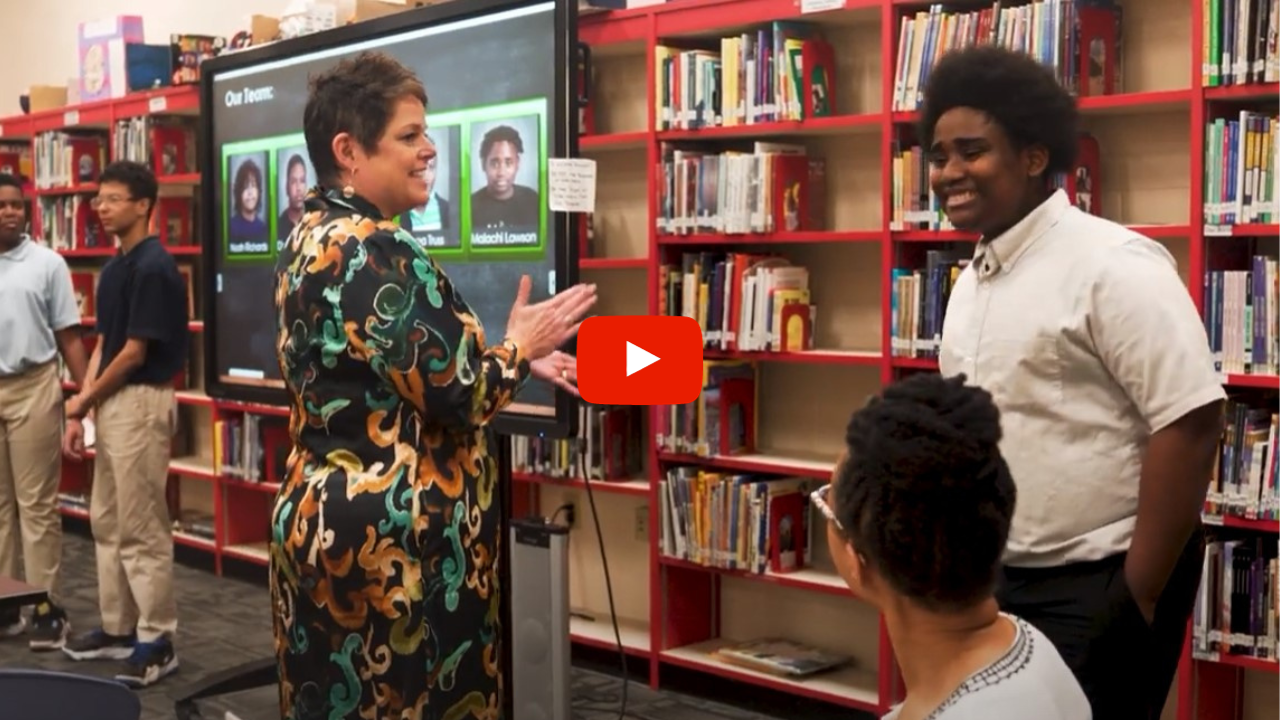In this episode, Doris and Alison discuss the journey that led to a recent workshop with educators in Slovenia. Also featured in the episode are excerpts from some of the entrepreneurial educators and students who came to the workshop in Slovenia.
Do School Better: A Podcast for People Who Want to Transform Education - Listen to more episodes here
Alison: Hey, Doris.
Doris: Hey, Alison.
Alison: How are you?
Doris: I’m great, how are you?
Alison: Yeah, I’m feeling really good coming off of this workshop in Slovenia. We had 27 educators from 13 schools across the country who came to Ljubljana, which is their capital city, to learn some of these methods and take this work back to their schools. It was pretty inspiring.
Doris: It was really inspiring.
Alison: Why don’t you take us back and share with our listeners the journey that led us here?
Doris: Yeah, I would love to. It’s really interesting because it all comes together as a little snapshot of what we’re seeing happening around the world, but it’s a lovely story. So several years ago, I got an email from Janez Gorenc, an English teacher, a high school English teacher in Slovenia in a city, Novo Mesto, and he had done research, he was looking… Now this was years ago, and entrepreneurship education, which seems almost mainstream now. A few years ago, it was really rare to come across anybody talking about entrepreneurship education in K-12. It’s really happened…this whole thing has really happened very quickly. So when Jan-,… I got this email from a high school English teacher in Slovenia who had done research and found Steve Blank’s blogs about what I was doing and the entrepreneurship class I was teaching at Hawken School. You know, we set up a call. He wanted to talk to me and that’s when we met over Skype several years ago. And I was immediately struck by his… Well, you know Janez, he’s an extraordinary guy.
Alison: Absolutely.
Doris: He’s a passionate, compassionate, incredibly kid-centered educator who really wants to change the world in Slovenia for kids, and I immediately saw that. And he had been doing research on his own about how he could bring something into his teaching that would help students develop skills. He felt like our education system wasn’t equipping students to succeed once they got out of school and he came across this whole idea of entrepreneurship education and became really passionate about bringing it to Slovenia, starting with his own experimentation and practice. So we started talking years ago and sharing and doing what people do when they’re experimenting with something new, and he actually came over to Cleveland to one of our workshops. And has been, for the last few years, bringing entrepreneurship education into Slovenia in every way he can. He, with… I believe he has a podcast earlier in our season, so I’m not gonna try to go through all of this because I am afraid I might get it wrong and I think anybody listening, after you hear this episode, if you haven’t listened to Janez’s earlier episode, you should to hear his journey.
But he started a “Startup Weekend” for teachers in Slovenia. He actually took on being an entrepreneur himself to experience it. He started a club at his school because it was really not accepted yet to have any kind of an entrepreneurship class as an academic course, so he started a club. And that’s really hard work because you’re trying to get students to volunteer to do something that, as he told me many times, when they show up for this after-school club and they start getting into it and they realize that it’s really hard work, you know, he loses a bunch of them. But the ones who stay and stick it out, he’s had extraordinary success with. He’s brought teams to the U.S. who have qualified for and competed in international entrepreneurship competitions, he’s experimented with using real problems in these teaching methodologies in his English classes, and he’s started a community and a movement within Slovenia along with some others, and we met them, who are banding together to bring very different kind of learning and teaching model into Slovenian K-12 education. So Boris Kunilo, who sponsored us and hosted us, who runs Spirit, which is an agency that puts on, I think we heard, 30 different workshops for students and teachers a year…
Alison: That’s right.
Doris: An extraordinarily passionate man who is banding together with others to really change education in Slovenia. We met with Maja Krušič Šega, who heads Entrepreneurship in Education in the Ministry of Education. Totally passionate about bringing entrepreneurship into Slovenian education and she’s working with her counterparts in several countries, right? Wasn’t she…
Alison: That’s right. She mentioned Portugal, Luxembourg, and Austria, right?
Doris: Yeah. And… So these people are together, along with several others we met, actively working to create programs for teachers and for students where teachers and students experience the entrepreneurial process. Sometimes in an academic setting, sometimes in a separate program, but always connected to the learning, to the skills, to the process. And facing… You know, they’re facing the challenges that, you know, everyone who’s doing this and trying to do this is facing or tends to, which is the word “entrepreneurship” has a lot of negative baggage associated with it, as we know.
Alison: Right.

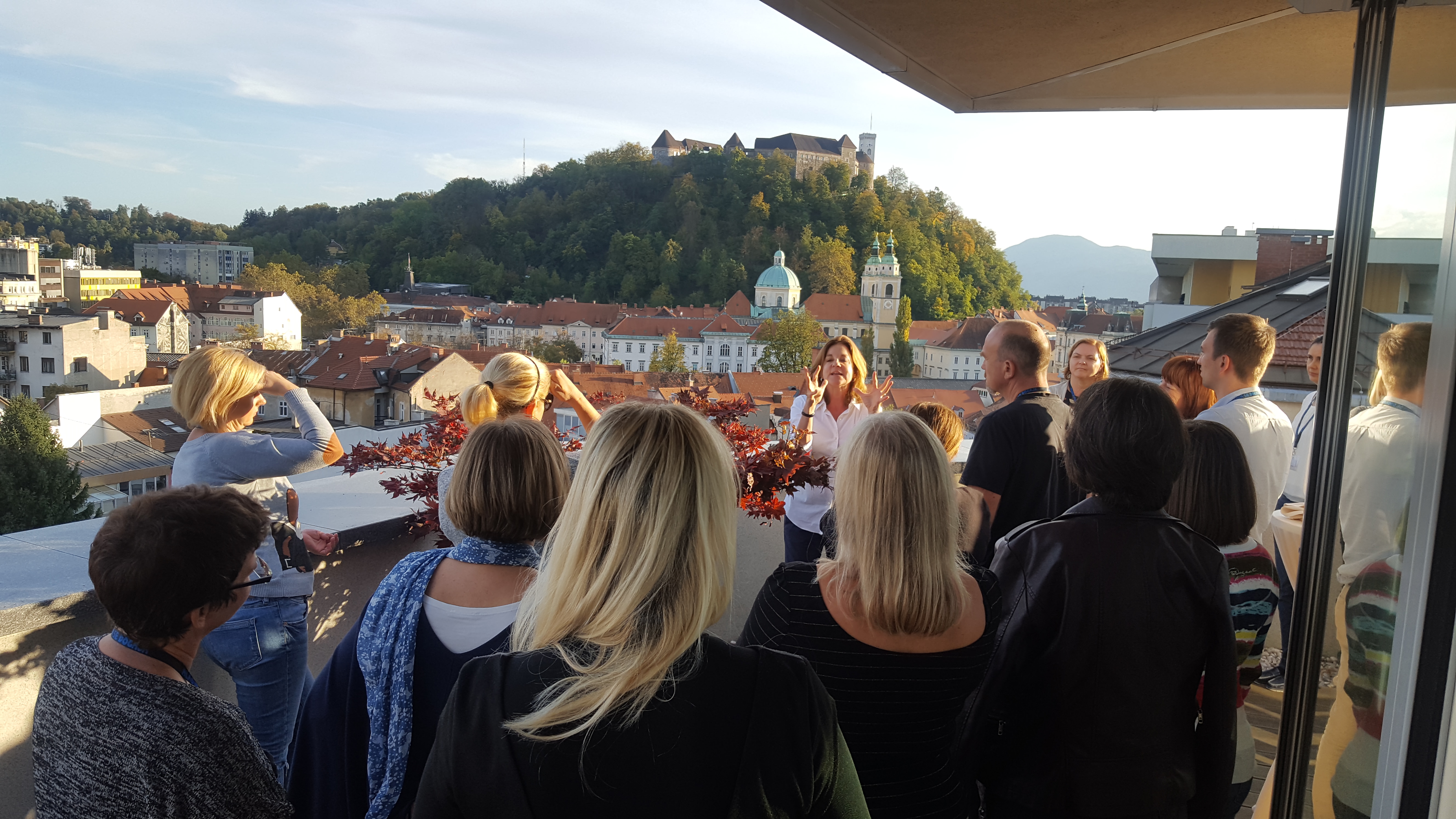
Andreja Prescar: I think it’s very great experience for us. I came here to see the Korda Method, because over the last five years, each year we made entrepreneur projects. We also know this method can be used in other subjects. Because we are not making entrepreneur, we teach children how to live in real life, live in the future. I think this is very important.
Jasmina Horvat: I’m Jasmina. I’ve worked for five years on this kind of project. We are doing something which student identified with our schools. And we’ll do solving problems, creative. I don’t know what will be the result but the process is important.
Matic Pilko: Hi, I’m Matic. And yeah, basically why I’m here is because I like to teach in a new way, in a new direction because the 21st Century brings us a lot of new technologies, a lot of new problems, and the students have to learn how to see problems and then how to solve them. That’s basically what Doris is doing. So I was really grateful that I could hear her ideas. And I would really like to connect students with companies, real problem, real solution, and real experience. And also, it’s good because they see that they can do it. They can do it and they will do it because their real life will hit them hard in a few years and these skills that we are doing, this stuff really matters. They got the real experience, real skills that are useful and that is what they will bring to community, to the city of Ljubljana.
Maya Okorn: I went to other workshops but these two days really were something different. Not only because of this practical work, which was really intense, but also because it really opened my mind and I really got this pilot for a project in school, so. As a teacher, I see kids and, actually, they’re not doing anything meaningful. And it really…I was really thinking of it. I’m thinking of it every day, because I’m saying, “Look, what are you doing?” “No, we’re just here waiting.” And the problem that kids will be the one that really solve the problem properly because that’s the real problem. I was thinking those kids should involve…we should involve some parents, some local environment. I hope, I mean, I think they will solve the problem in sort of way and I really hope that we will make it real in our school. And that will be something that it will be a part of our curriculum or whatever. So, but for the kids, I really hope that they will make this personal experience which will change them and, I mean, like self-esteem and stuff like that, so. This is my goal.
Alison: Let’s hear from some students as well. We have Larson Cundrič and Rebeka Udvanc, who are going to share more about their experiences.
Larsen Cundric: In Slovenia, when you say the word “entrepreneurship” everybody gets scared. So the first thing, entrepreneurship is not something scary. It’s a very good thing. It’s that you basically learn teamwork and how to make an idea work or come from an idea to a real product. They shouldn’t promote it as entrepreneurship in school. I mean, they should promote it as teamwork or something like that. But I think they promote more…they promote being individual. They like making something alone, but they should be promoting teamwork. And that’s a huge thing that the school system in Slovenia is lacking right now. Everywhere you go you end up in a team. I mean, even teachers need to collaborate with a certain, like…be a teacher, you want to do things alone. Everything. I mean, you’re not on isolated island. I mean, communicate, step outside of comfort zone, get to know other people, team up with them, make something great.
Rebecca Udvanc: I learned that I can do things by myself and that I’m not just one of many others who just repeat after everyone else and do what the teacher tells them. But I can make ideas on my own and I can do some projects, sell them, learn things, and really accomplish things that I would never even dream of. I think that’s better because if you do something because you want to do it, you lead with your heart and with your inner motivation, and you’ll do it much better and learn much more. It makes you feel that you can do something, that you’re powerful to do anything you want. And yeah, I learned that and I want others to learn that too.
Alison: And finally let’s hear from Janez, the Firestarter who brought us here.
Janez Gorenc: Okay so my name is Janez from Slovenia, from actually from a small town, Novo Mesto, where I teach English and I try entrepreneurship at a high school. I’ve been teaching English for, like, this is the 22nd year and entrepreneurship for about 7 straight years. And while I started off in my first school, and I started without any structure, I just thought I knew everything but I found out I didn’t know everything, I actually knew nothing, I started learning all these different methods that I tried to implement. Some of them worked, some of them didn’t. And until I read in Steve Blank’s blog about the Korda Method, actually what Hawken was doing. I then was kindly invited to come to Cleveland, to the workshop. I went there, changed my view of everything, actually.
So I tried to implement it in after-school classes. It worked wonderfully but not as I would have liked. So, also tried to implement it in my English classes. Some classes it worked wonderfully, other classes not so much. So when I… I’m probably one of the few privileged few people who had the opportunity to be at two workshops, two Korda Method workshops. And this one, actually, has opened up completely new perspectives, again. Even though I saw some, I heard somethings for the second time, it’s better to hear them twice than never. But also, it gave me more structure, more details, you know, the minute details that you will need when you want to do teamwork. Not that I didn’t have structure before, but somehow it all got watered down, like, they didn’t know what to do, what the first step was and what the second step was. And necessarily I would have to go there and say, you know, “You have to do this and this and this.” And it would require sometimes too much study, too overwhelming, and they just didn’t do it the way I would have liked. So this new approach, I’m hoping, I can overcome some of that. And then, maybe, at a certain workshop, who knows, I’ll learn some other stuff. Yeah, constant learning.
So yeah. Besides working in my school I’ve also worked with projects outside my school. I’ve worked with primary school kids with many different teachers, great, great teachers. I must say I’m honored, to be part of a team that has also done some workshops, started weekend workshops for teachers that have, in a way, transformed also their experience, their teaching methods, in a way. Also, one of the administrators of an informal group, it’s called, in English it would be “Edupreneurs.” It’s a group for teachers who are just trying to be entrepreneurial in the educational system.
Why is it important? Well, why I entered into this, why I started doing entrepreneurship? Because I wanted Slovenians to become more entrepreneurial, to have more great businesses, and that is all great. But in the process of learning, in the process of trying to, you know, come up with new methods, I found out also what Doris Korda also says very often, that entrepreneurship is also a great vehicle to teach other stuff. So you have…on the one hand, you bring up kids, you train kids to be more entrepreneurial but at the same time, they will learn stuff through the challenges, authentic challenges, things that really matter to them.
So, you know, all of this didn’t come at once to me. I had to do it step-by-step and say, “Ah, look. This is where it works but it also works over here.” So in Slovenia right now, we are, we might be, in a sort of a transformation period. The Ministry of Education also is getting into this big time. Big, big time. And they’re hoping, and I’m wildly excited about this, they’re hoping to, in a way, bring this entrepreneurial mindset, entrepreneurial classes, in a way, they don’t yet know how, I think, but they would like to bring it into all schools from primary schools, secondary schools, universities even, which is a great, great opportunity to basically transform schooling, transform education on the national level. We can do this. We’re a small nation. Not too different, you know, quite egalitarian. So it can be done, I believe it can be done. I hope I’ll be a part of it still in the future.
Thirteen school that were here. So, as I said, many of the teachers that… I’ve worked with many teachers that have been to Startup Weekends and gone back to their schools, done some things. I believe many of these teachers, perhaps, lacked structure, maybe. So now, what they’ve started here is a pilot project that they would like to do at their schools. And this pilot project actually has the backing of an institution that is formal that is, wow, from the United States, which is a big thing, really. And this, I hope, I’m hoping, will it be the start? Well it never… I don’t know what the future holds for us. But I’m hoping that it will be, yes. Thirteen here and then 23 and then 230 and then slowly it might spread. Not to all schools probably, definitely not to all teachers. But it will spread to those to whom this matters and that is what is important. People who would like to do this, and I’m sure there are plenty, plenty out there, will know what to do, who to turn to, and that it can be done in a different way.


